Pioneering rewilding project in Perthshire shows us nature can rebuild with our help
Driving through rural Perthshire at this time of year feels good for the soul. Orange and red leaves adorn the trees, birds call from all around and the crisp autumnal air feels fresh against the skin. An already beautiful part of the country is transformed into somewhere truly stunning.
But like much of Scotland, what we see today is far removed from what once would have stood here. So much of this country’s historical natural environment has been given over to farmland, and biodiversity has paid the price. Species abundance has declined by a quarter in the last five decades alone and efforts to reverse this are relatively new.
The Bamff estate, situated just north of Alyth on the very edge of the Highlands, was an early adopter of rewilding. Started in the 90s by the Ramsay family, Sophie Ramsay took over the Wildland Project in 2019. The aim was to create a “contiguous area of dynamic wild land and complex habitats, this sort of idea of the mosaic of microhabitats,” she says.
The small estate has been in her family since 1232, a gift from King Alexander II of Scotland. The land has undergone many changes since then, but when her parents, Paul and Louise, took over the estate in the 80s it was used mostly for barley, cattle and sheep. The couple wanted to take it in a different direction and, in 1992, the first pinewood was planted to begin restoring the forest. A decade later, the family introduced wild boar and beavers, a controversial move which “hasn’t won many friends among our landowning and farming neighbours,” says Ramsay.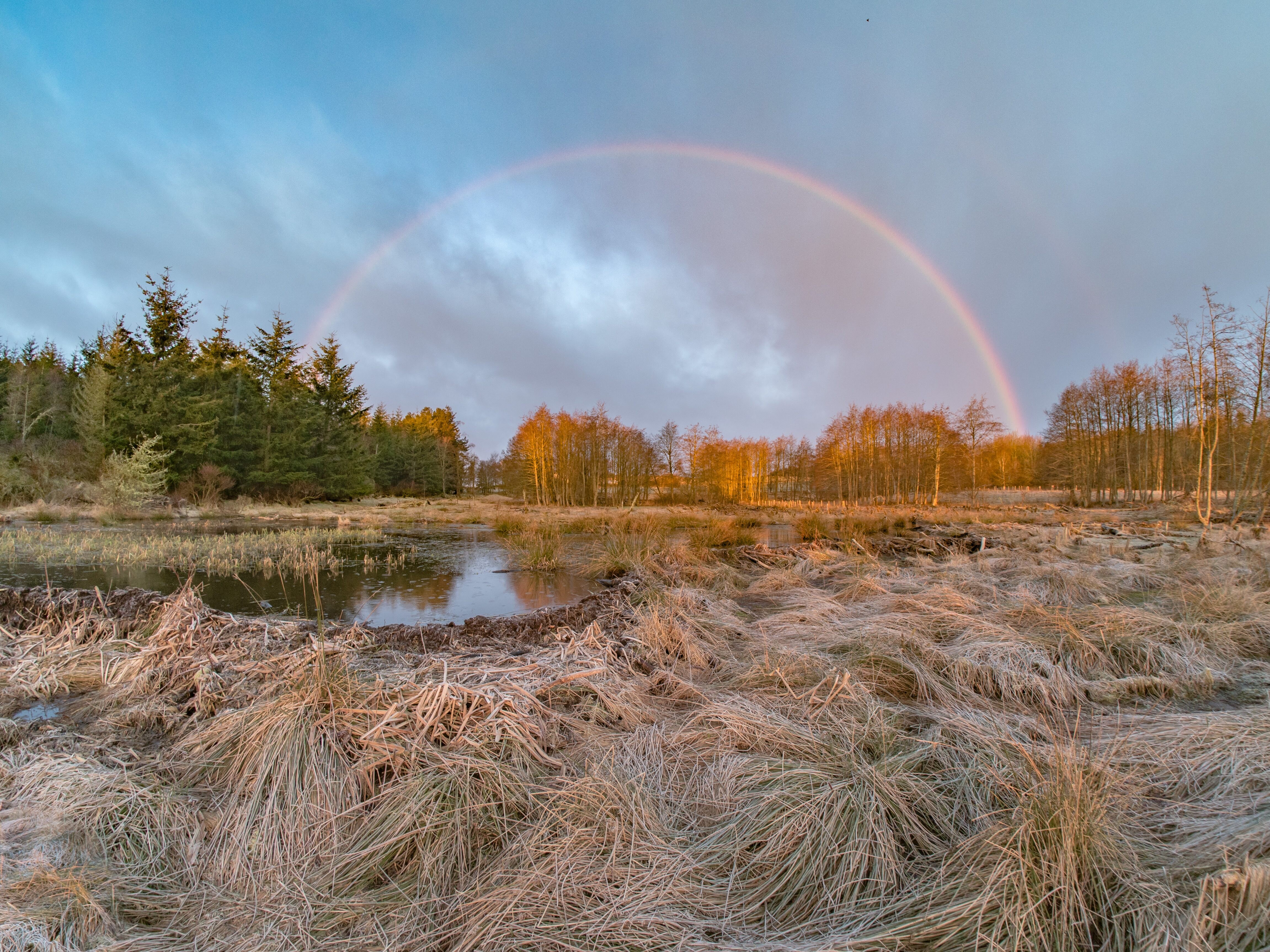
“Among landowners the general feeling is that what you do on your own land is your own business. People always probably thought my parents were very eccentric, but it wasn’t until it started bleeding out of Bamff and into other people’s land that it started really bothering people – when beavers ended up in Strathmore and so on, that was when I guess it became really political and more difficult socially.”
The release of beavers has dramatically altered the landscape over the last two decades. Former agricultural drainage ditches have been dammed by the creatures, creating natural reservoirs and waterfalls. Their presence keeps the water level steady all year round, allowing trees and other plants to grow – which are then used by the beavers to reinforce their dams and the cycle starts again. “Beavers are gardeners,” Ramsay says. “They’ll cut back and then they’ll leave it.”
Ramsay grew up in Bamff with her three brothers. She spent some time in Edinburgh, Paris and London, before moving back to the family home in December 2018 with her partner, Dave, and they had a daughter not long after. She says she “always felt incredibly connected” to the place, though she has mixed feelings about landownership.
Becoming visibly uncomfortable when the conversation naturally turns there, she explains: “The broad question of landownership is really complicated and difficult, and it doesn’t sit easily with me that much.
“But the idea of having the privilege of being able to make decisions about a piece of land – especially at a time when we’re in this biodiversity crisis and multiple ecological crises, and we see that neither our governments nor any of the capitalist world are fully responding – having the idea that you could actually make decisions about the place is really powerful and exciting.”
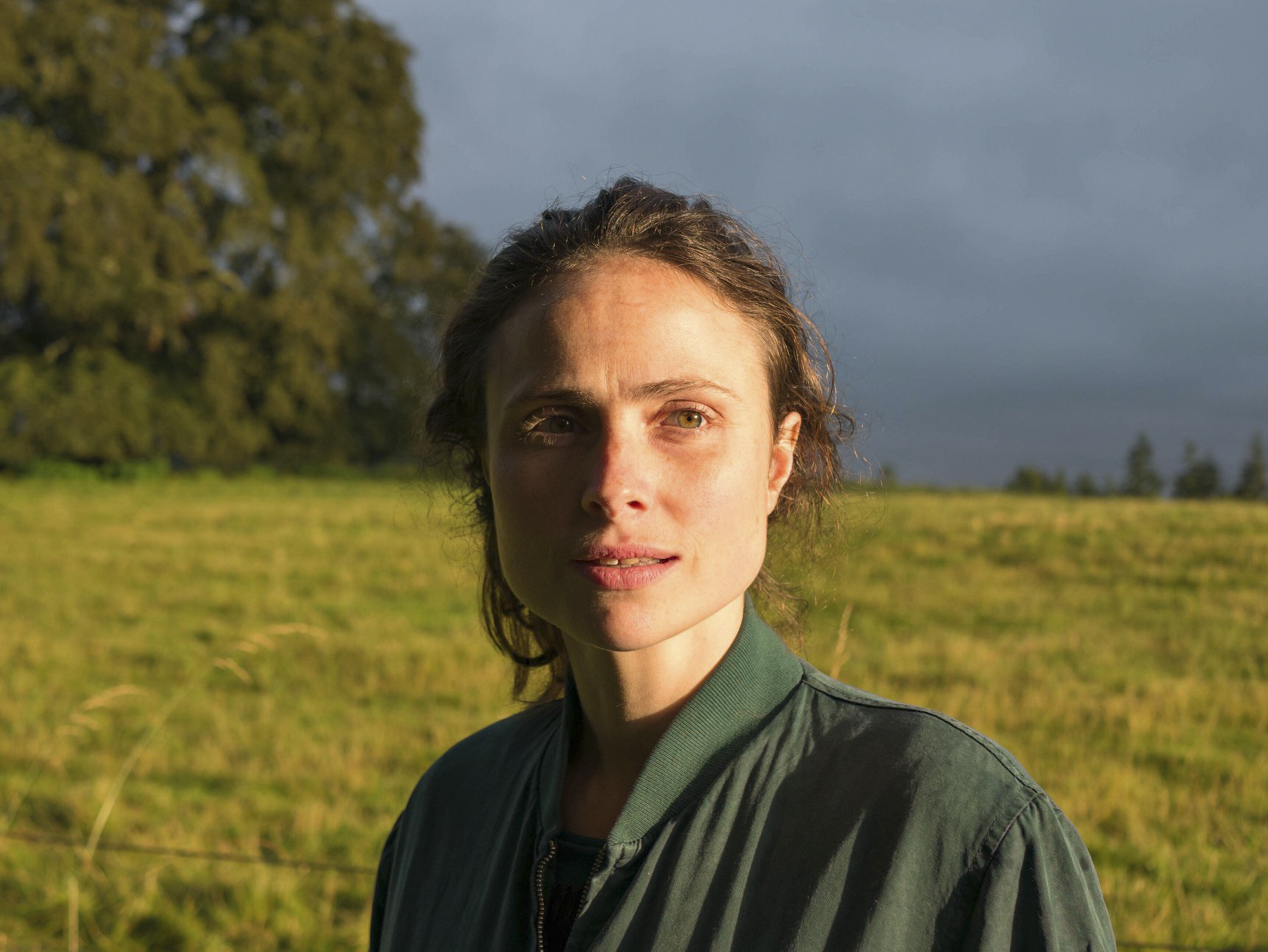
She does, however, believe the government should be taking more of an active role. “I disagree with these other landowners who think that it’s our business what we do on our land. I don’t actually think it is our business. If land ownership is to persist, then I think that the government needs to be much stricter with us about what we do.
“For example, everything from the massive use of agrochemicals – which has been ramped up and ramped up and ramped up over the years and is destroying the soil and its capacity to regenerate – to bleak grouse moors – which are being managed for grouse and very little else, and which are also sites of many environmental crimes – I think that there’s far too much tolerance for all of that and the government really needs to act.
“I don’t really know what to say other than that. If such a thing exists as land ownership, then landowners shouldn’t be allowed to be responsible entirely for what happens, because the land is the surface of the earth, it’s the earth upon which we all depend and our survival depends and most landowners simply aren’t qualified. They might be qualified in farming, but certainly not in ecology and so they shouldn’t be allowed to make these decisions which are degrading the environment.”
She says it has been “heartening” to see a growing number of landowners take an interest in rewilding, and she points to the Northwoods Rewilding Network. “All of the members are rewilding to some degree and are passionate about combatting biodiversity loss. I don’t think it should be up to landowners just to make the right choice, as I said, but this is a source of hope, and I think all of these projects will serve as examples that will hopefully help to change policy for the better.”
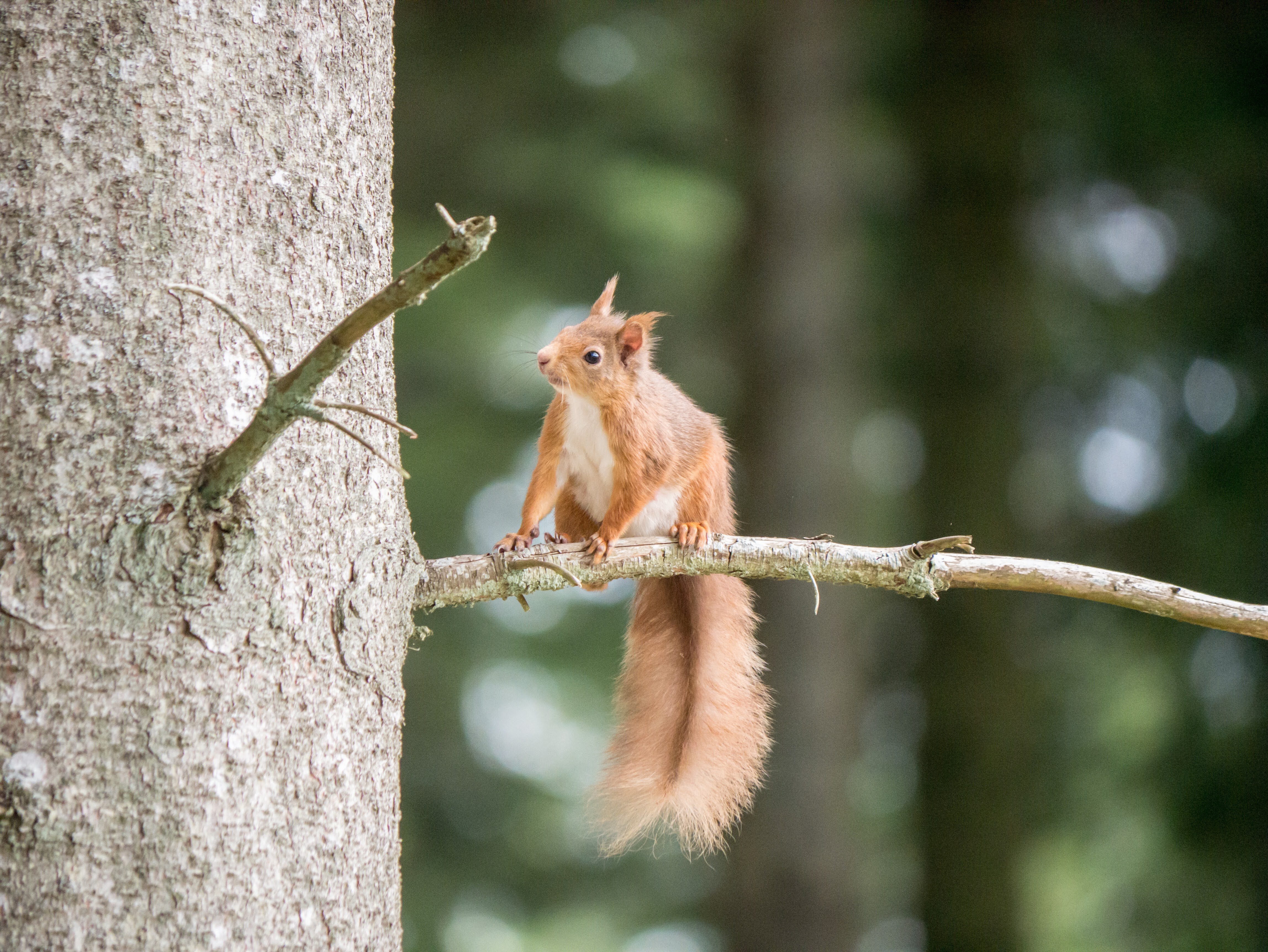
She’s also supportive of other models of ownership, adding: “It’s really exciting to see more community-owned projects, and especially more community-owned rewilding projects and ones that address de-peopling.”
Could Bamff ever be subject to a community buyout?
“I don’t know. I think that those kinds of proposals have to come from the community… It’s a really difficult one. I feel pulled in different directions, but for probably emotional reasons,” she admits.
She is, however, keen to include the local community more and has already worked with Perth and Kinross Countryside Trust and the Alyth Development Trust. “We’re really trying to monitor as much as possible so that we can tell a really strong story about what happens when you rewild. We’ve tried to accrue as much baseline data as possible, and we’ve involved the community in that as much as we could.
“We did community tree planting and we’ve been promoting access in different ways… I’m still thinking about ways that we can have more of a sense of cohesion and perhaps equity.”
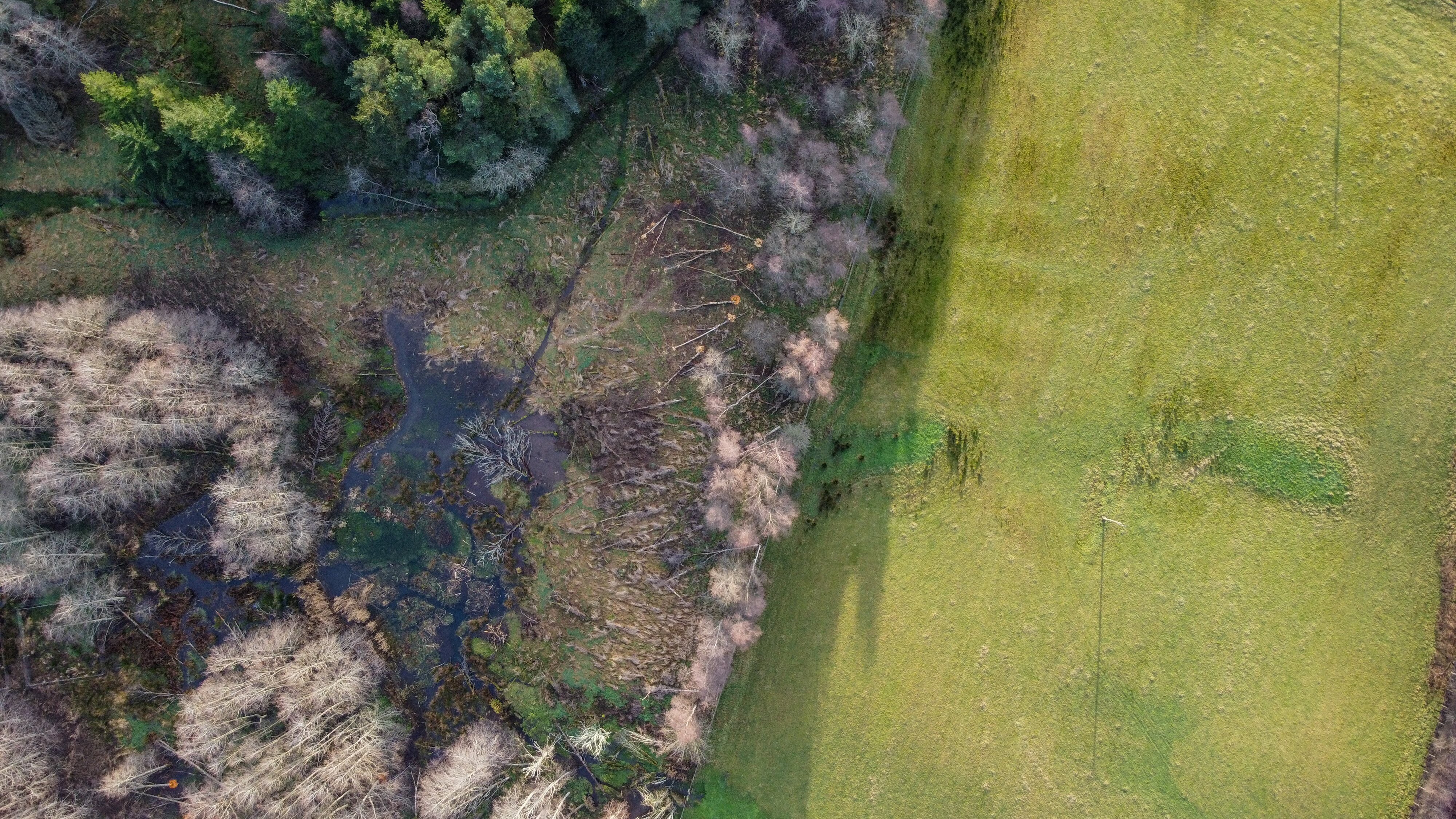
Despite the good work going on in some spheres, overall Ramsay is pessimistic about efforts to stop climate change. She’s not hopeful about COP26 or the actions of world leaders, either. In particular, she is dissatisfied with the Scottish Government.
“I feel really, really disappointed in the Scottish Government, to be honest. I really want to think that they are much better than the Westminster government, and you’d think surely they would be given who’s in Westminster at the moment, but when we look at what they’re doing in terms of the environment, it’s sorely lacking, especially the expansion of oil.
“The battle we’ve had over beavers has been really depressing. It’s just taken years and years, and then finally they were given legal protection – but with the caveat that so many people were issued licenses to kill them. Many, many beavers have been shot as a result which could really undermine the viability of the population. It feels like the Scottish Government, for all their claims of being progressive, are actually really in hock to major landowners and large-scale farmers.”
The reintroduction and subsequent protection of beavers caused such a stooshie because the animals’ natural dam-building behaviour can play havoc with managed irrigation. The most recent estimates put total beaver numbers at around 1,000 in Scotland, but in 2020 alone 115 of them were legally killed.
This isn’t the only area of disappointment for Ramsay. She is also critical of funding structures, insisting the system of farm subsidies means “you get more money for just putting sheep everywhere than if you don’t”.
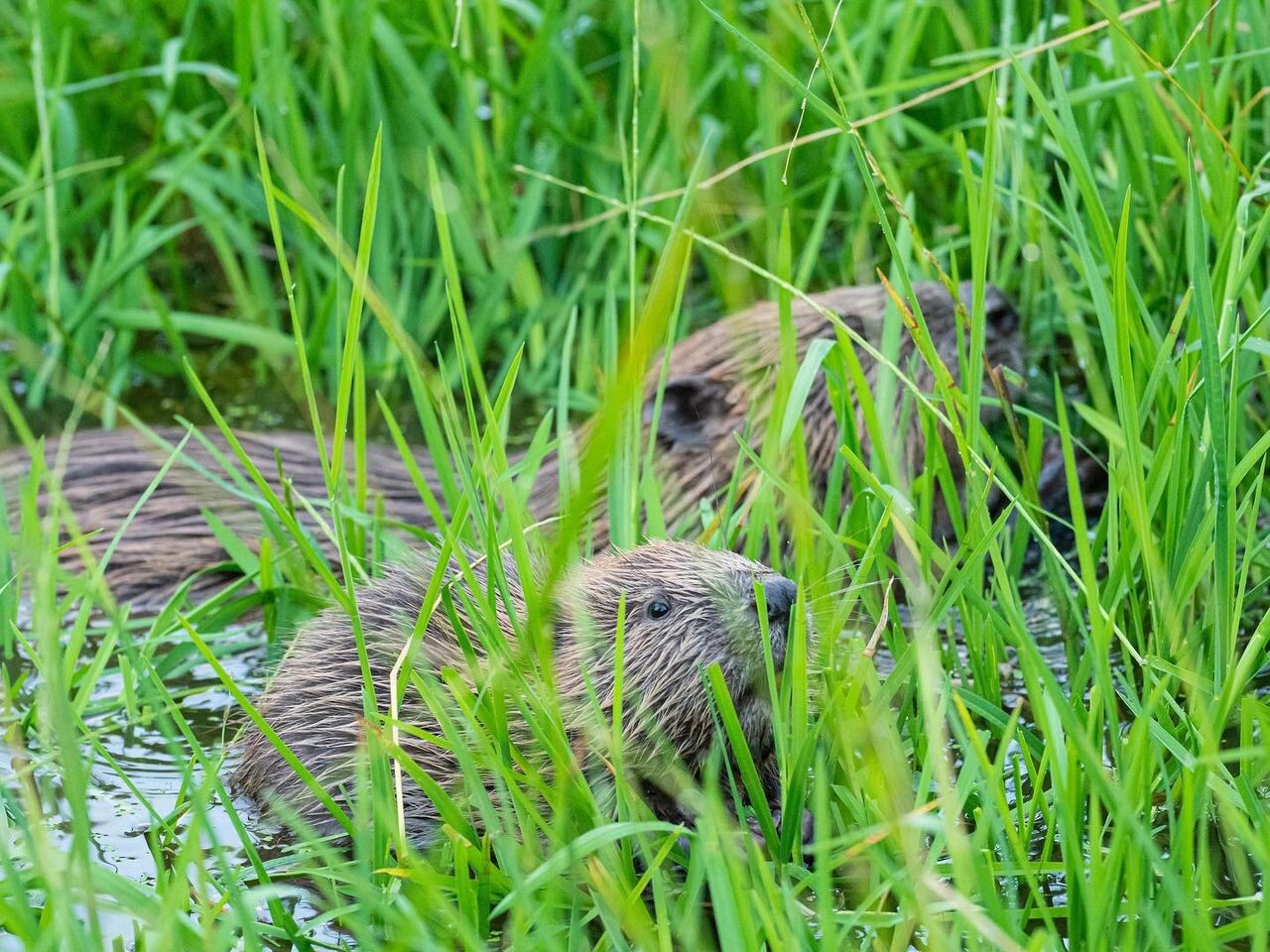
The rewilding at Bamff has been largely self-funded, with some support from conservation charities like the Woodland Trust. A successful crowdfunder earlier this year raised £40,000 which will help pay for the next part of the project, restoring former agricultural fields back to wildland. This year has been a fallow year, but yellow rattle seed (which weakens the domination of grass and therefore helps increase diversity) will shortly be planted and perimeter fencing is being installed. Next year, Ramsay hopes to release native breeds of pigs, cattle and ponies to help with rewilding. But this is expensive and Ramsay argues public money should be available for what she calls “public goods”.
“Whilst I can totally understand why people feel like, why the hell should landowners get given money, I guess the counter-argument is that otherwise only very rich people would be able to run land. People that are managing and running land, they should be public servants and they should be doing what’s in the public good,” she says.
She believes the whole farming system must be overhauled. “The current policy, or the policy that is about to end because of leaving the EU, that was based around this idea that people should be paid for farming. Now I think we understand that the system is no longer working and it’s really broken our land.
“You can grow the same number of calories on a fifth of the land if you do permaculture versus extensive sheep farming, but it’s not viable to do permaculture because it’s much more labour intensive, and labour is expensive. And it should be because people should be paid.
“That’s the kind of thing that the government should be, in my view, funding. There needs to be a complete rethink of all of the funding structures.”
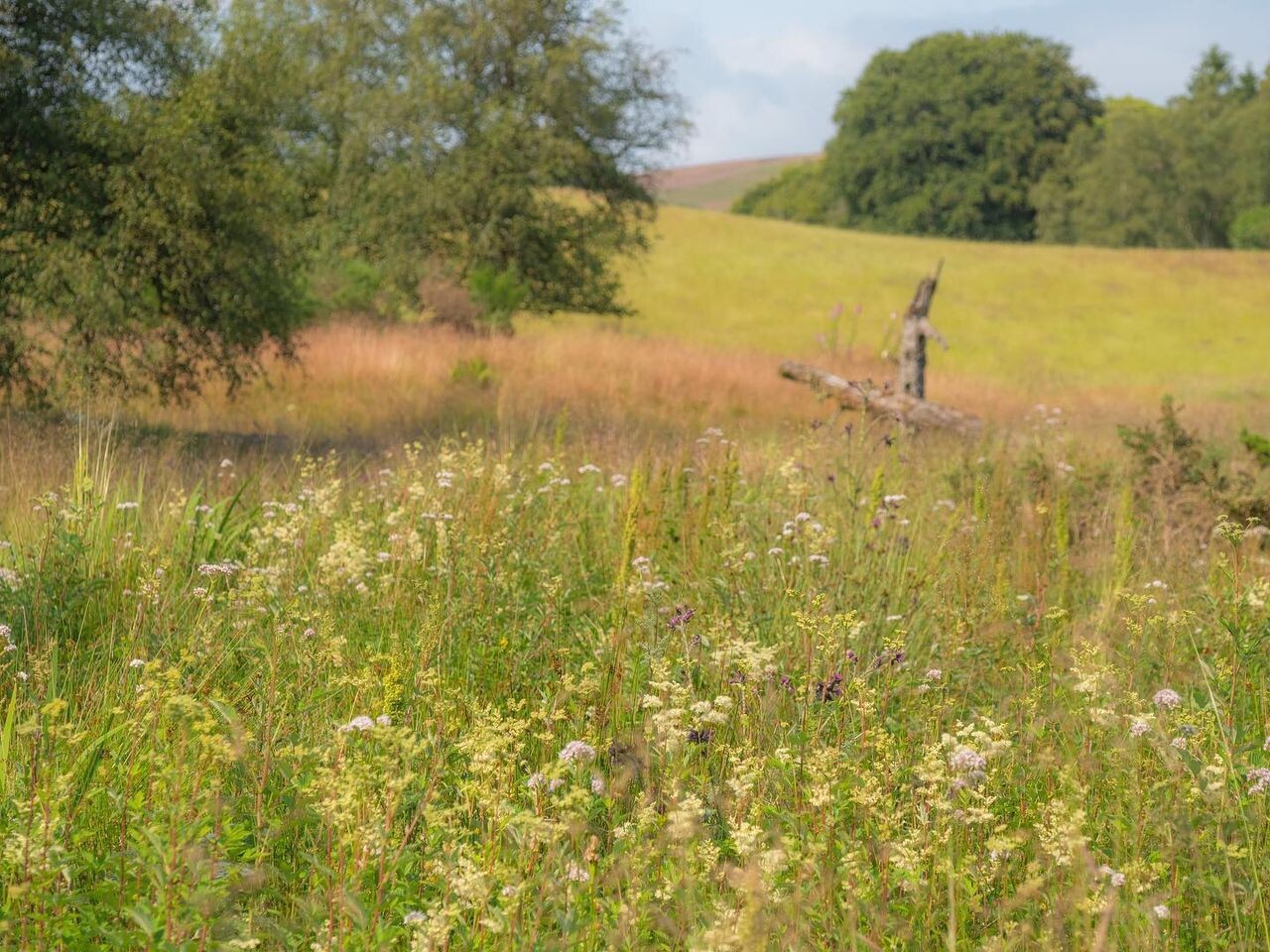
She believes the “farming mentality” of the last few decades has been to oversimplify what is an “incredibly, beautifully complex” system. While many farmers are “doing what they can, where they can find funding,” it is hard to mirror nature, whether that’s in maintaining healthy soils or mimicking the food chain.
“We can’t really have a fully functional ecosystem without apex predators,” she says, adding that she would support reintroduction of some of these animals, including lynxes and bears. “It’s amazing how much resistance there is. I think it’s a lot to do with education and just understanding. We do have a really strong island mentality, ‘we don’t have these species,’ we feel threatened by the idea of them being here.”
Overall, Ramsay believes there needs to be a big shift in how we talk about the natural environment and rewilding. “It comes down to this kind of culture war between people that have a deep-seated feeling that our job is to control nature, and people who recognise that we are part of nature and we depend on it. More than that, in fact, even the argument that we depend on it, I think, is inadequate. It’s ontological, it exists and we exist, and we are part of it.
“And we understand so much more now than we ever have about ecosystems and the interactions between all of these species… Given all of this new information that we have, surely it’s time for us to reassess our practice. Like any rational person would when you have new information, you adjust what you’re doing. It feels like we’ve had this juggernaut of land use policy and it’s easy to point the blame at anyone, you know, the farmers, the landowners, the government. But I think there’s this huge reckoning to be done.”
Holyrood Newsletters
Holyrood provides comprehensive coverage of Scottish politics, offering award-winning reporting and analysis: Subscribe